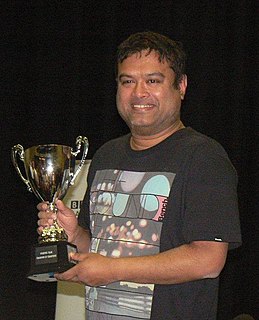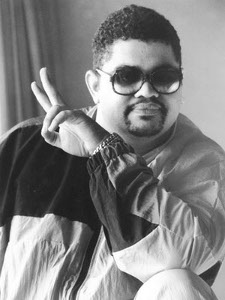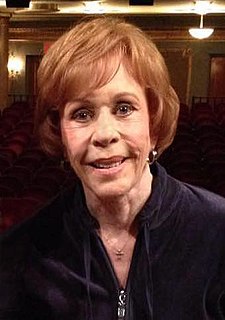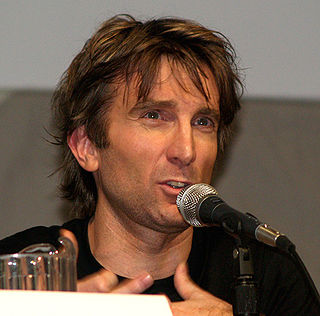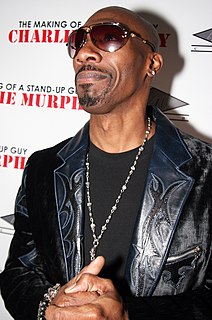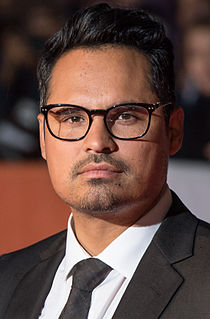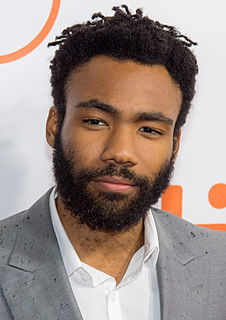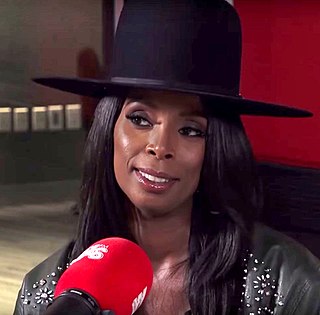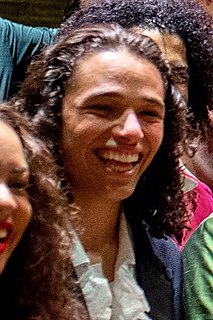A Quote by Paul Sinha
No other show was as absurd as 'Crackerjack'. It had Stu Francis, who was the first person I saw on TV telling jokes for kids, and then there were the Krankies, who were a comedy duo with a middle-aged woman dressed as a schoolboy doing sketches.
Related Quotes
People have a comic bent or an angularity to their thinking, and those are the people who make jokes. And it's usually people who were in an environment, when they were young, where jokes were at a premium, or at least considered important to a life. My parents always listened to the comedy radio shows, we went to the comedy movies, and my parents appreciated comedy. So kids listen and follow what their parents like.
I had PubLIZity, I had Oh, Hello, I had Bobby and Farley - all of these sketches that were really these duo sketches, but the relationship between them is really what catapulted them forward. A lot of that, I think, came from Wayne and Garth, these two similar guys - they're Midwestern metal guys - but in the end, they're quite different because there's an alpha and a beta. And I think that model became very present for me on Kroll Show.
I was in California the first time I heard Michael Jackson wanted to record with me. I was, like, 'Nah, no way, he's too big, it can't be true.' Then I got a call from Michael's people at my hotel telling me he was interested. But I still wasn't believing it - I thought they were setting me up for a TV practical jokes show.
I love comedy. I suppose comedy is my first love, in a way. I did a lot of acting, funnily enough, unprofessionally, as a kid. From when I was 10 years old until I was about 19, I was always doing little sketches with my friends, and doing different accents and voices. Probably about 3/4 of those were comedic, in some way, and the other 1/4 was more serious stuff or more action or more dramatic little pieces that I would make. But, I tend to lean towards comedy.
I didn't like what was on TV in terms of sitcoms?it had nothing to do with the color of them?I just didn't like any of them. I saw little kids, let's say 6 or 7 years old, white kids, black kids. And the way they were addressing the father or the mother, the writers had turned things around, so the little children were smarter than the parent or the caregiver. They were just not funny to me. I felt that it was manipulative and the audience was looking at something that had no responsibility to the family.
I've found that when I was young, all the pretty girls at school got all the dates and went to all the big parties and everything because they were pretty. They never bothered to develop anything. And as they aged, their prettiness faded and they were left as middle-aged women who were very, very unhappy and disappointed. But I can't feel sorry for them because that was their own doing.
You have comedians who just do jokes, and they're called comics, not comedians. You have comedians that do bits - a person that has a lot of jokes that have a beginning, a middle and an end, but it's not a real story. And you have someone that does great stories, the one that blends those things together - that person is doing comedy.
I went to a public high school and most of the comedy was coming from the black kids and the Asian kids and the Hispanic kids. And, the coolest kids to me where always the black kids. They were always fashion forward and they always dressed the coolest. They were always the best dancers, and just the coolest people.
I was a crazy Pee-wee Herman fan when I was in my early teens. Before he had the kids' TV show, he had a nightclub show in L.A., and I had gotten a VHS copy of it. It was a kids' show, but onstage in a bar, so it's sort of poking fun at the kids' show. And I was obsessed with that, and then 'Pee-wee's Big Adventure.'
When I was studying comedy in Chicago, it wasn't long after 9/11. There were a lot Middle Eastern comedians who were doing bits about hailing cabs and being terrorists. So the first two years, I didn't do any of that because I wanted to separate myself from those guys. But race is a big part of who I am, and it should be a big part of my comedy.
I would say this, I'll go back to those black ladies I was talking about who love them some Barack and love Michelle even more - and by the way, they are not middle-aged anymore, because I'm now middle-aged. So they're a little bit older. As fervent as they were, as excited and happy as they were when I was elected, they had to go to work the next morning. They still had trouble paying those bills. They might have still had a son who was in trouble with the law or couldn't get a job because of a felony record. They didn't stop being grounded.
